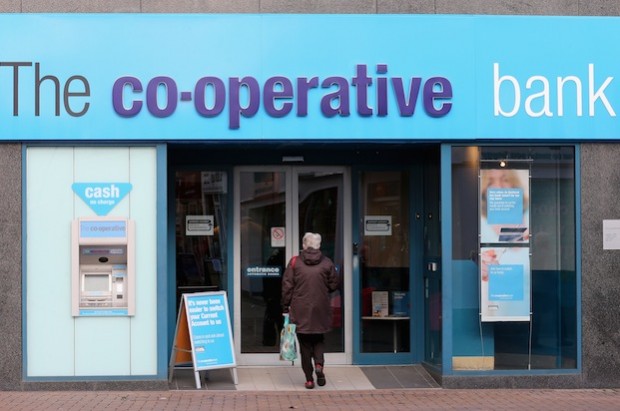The naughty Reverend Flowers will be a comic footnote in the history of the financial crisis — but no more than that. In terms of making ministry relevant to modern congregations, you’ve got to take your hat off to a man of the cloth who knows his ‘Charlie’ from his ‘ket’ (for the uninitiated that’s a horse tranquilliser) and likes to unwind after a tough select committee hearing with a ‘two-day, drug-fuelled gay orgy’. But it must be obvious that neither the FSA nor his own colleagues thought him anything other than a figurehead when he emerged through the Co-operative hierarchy to become a director of the Co-op Bank in 2009, and its chairman a year later.
Vastly more significant in the bank’s crash was the role of chief executive Neville Richardson — who had run the Britannia Building Society which the Co-op absorbed in 2009, and whose claim that he left the group in good shape when he resigned in 2011 has been vigorously disputed by Andrew Bailey, head of the Bank of England’s Prudential Regulatory Authority. Worth scrutiny too is the risk committee of the Co-op Bank board, chaired since last year by one of the Bank of England’s own alumni, Merlyn Lowther, and before that by Peter Harvey, a former senior banker at Barclays and, come to think of it, the eager credit analyst I used to sit next to there 30 years ago. Paul Flowers has given us a good laugh, but it’s the professionals who must carry the can.
This is an excerpt from Martin Vander Weyer’s Any Other Business Column. Subscribers can read the whole piece here. Non-subscribers can join us today by following the link below.







Comments